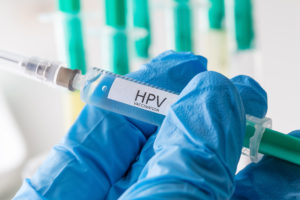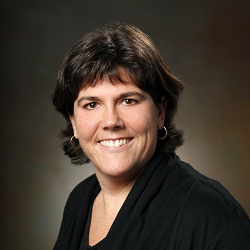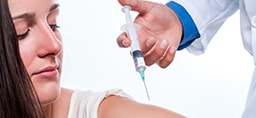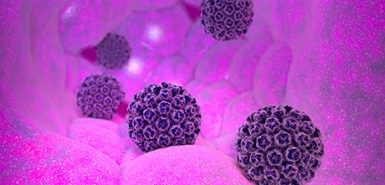
U.S. Food and Drug Administration approval of the Gardasil 9 human papillomavirus (HPV) vaccine has been expanded to include people ages 27 through 45, the agency said in a news release.
Gardasil 9, approved in 2014 for people ages 9 through 26, is the follow-up vaccine to the original Gardasil, which was approved in 2006 and is no longer sold in the United States. The updated vaccine is designed to prevent cancers and disease caused by nine HPV types.
Our Take
Suzanne West, MD, an obstetrician and gynecologist with Spectrum Health Medical Group, said she recommends the vaccine for people, even if they’re already sexually active.
“Once you’ve contracted HPV, there is no cure,” Dr. West said. “The only effective way to protect yourself from contracting HPV is the HPV vaccine.”
The vaccine protects against nine of the high-risk strains of HPV, the virus that can cause cervical cancer, genital warts, vulvar cancer and penile cancer.
“You get optimal protection if the vaccine is given prior to initiating sexual activity,” she said. “Cervical cancer kills people. There isn’t a good treatment for cervical cancer once you have it.”
There are more than 100 different types of HPV, four of which cause about 70 percent of cervical cancers. HPV is typically diagnosed when a Pap smear reveals signs of the virus in the cells or after the emergence of genital warts.
Some 14 million Americans become infected with HPV each year, according to the U.S. Centers for Disease Control and Prevention. About 12,000 women are diagnosed annually with cervical cancer caused by the virus and 4,000 women die each year from the disease, the CDC reports.
“The Centers for Disease Control and Prevention has stated that HPV vaccination prior to becoming infected with the HPV types covered by the vaccine has the potential to prevent more than 90 percent of these cancers, or 31,200 cases every year,” said Dr. Peter Marks, director of the FDA’s Center for Biologics Evaluation and Research.
Gardasil 9 also is designed to prevent HPV-triggered cases of genital warts in men and women, and vulvar, vaginal and cervical precancerous lesions in women, the FDA says.
The most commonly reported side effects of the vaccine include injection-site pain, swelling, redness and headache.
Gardasil 9 is produced by a subsidiary of Merck & Co., based in Kenilworth, N.J.

 /a>
/a>
 /a>
/a>
 /a>
/a>